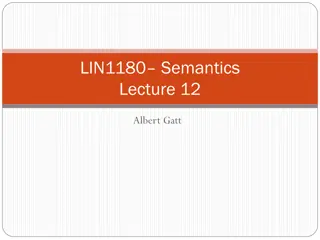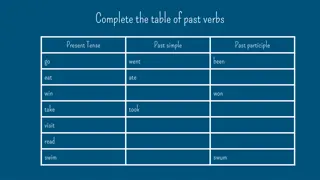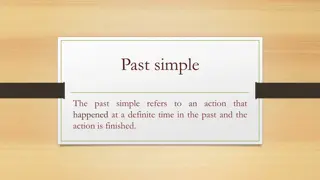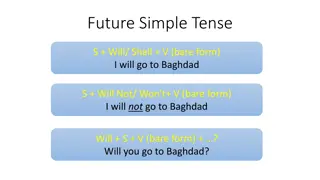Understanding Plusquamperfekt Tense in German Grammar
The Plusquamperfekt tense in German is used to refer to actions that happened before another event in the past. This tense requires the past participles of haben and sein, such as hatte, war. Subordinating conjunctions like als, bevor, nachdem are used to establish a timeline of events. Conjunctions influence the word order in sentences, with the action verb typically placed at the end when preceded by certain conjunctions. Knowledge of these rules and structures is crucial for mastering German grammar.
Download Presentation

Please find below an Image/Link to download the presentation.
The content on the website is provided AS IS for your information and personal use only. It may not be sold, licensed, or shared on other websites without obtaining consent from the author. Download presentation by click this link. If you encounter any issues during the download, it is possible that the publisher has removed the file from their server.
E N D
Presentation Transcript
Plusquam Perfekt Past tense 3
Uses and rules Used to refer to something that happened before another event in the past. Example: I had already thought about it before I brought it up. You must use the past participles of haben and sein hatte, etc, war, etc It will be used in a single sentence format, since it is being mentioned that it happened before the other past event. Use the subordinating conjunctions to establish a timeline in which the events occurred.
Conjunctions als- when bevor-before nachdem-after FYI: The subordinating conjunction will send the action verb to the END of the sentence. After bevor and als use the perfekt or pr teritum, put the main part of the sentence in the plusquamperfekt. If you use nachdem reverse the order. Put plusquam first, then make the main clause in the perfect or pr teritum.
Secondary If the clause with bevor, nachdem, als is in position 1 of the sentence, the main part of the sentence will start with the action verb. If the action verb is in plusquam or perfect, the helping verb goes first, past participle at the end of the sentence.

























